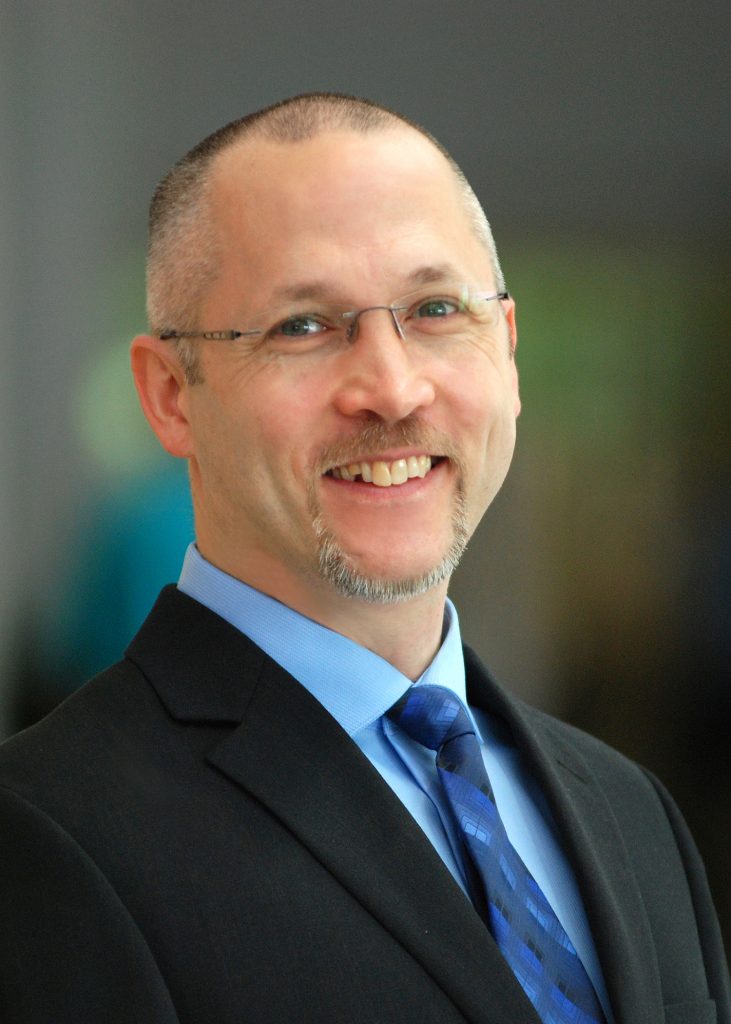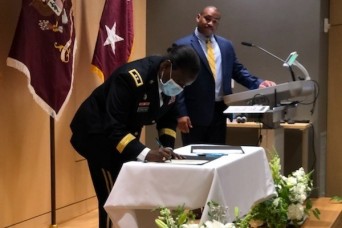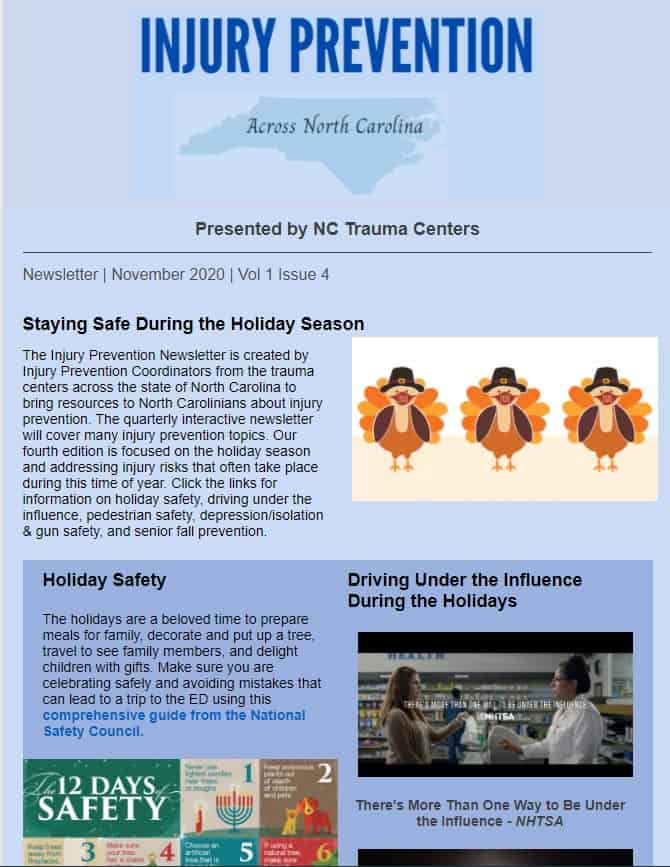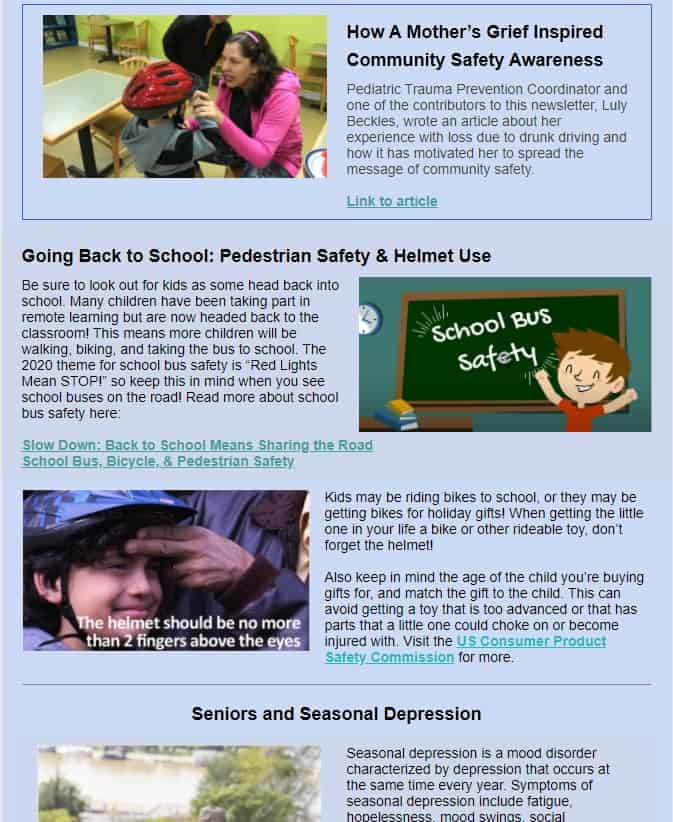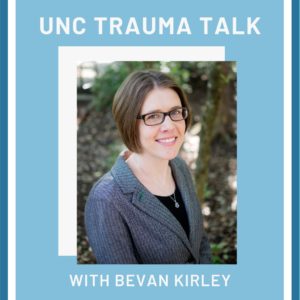
UNC Trauma Center’s newest podcast episode of Trauma Talk is on booster seat safety with Bevan Kirley, a senior research associate at the UNC Highway Safety Research Center. In the episode, Bevan stresses the importance of booster seat use, offers tips on proper usage, and shares common mistakes parents and caregivers make.
Booster seats play a critical role in keeping kids safe, and kids probably need booster seats longer than you think.” -Bevan Kirley
The UNC Trauma Center and the UNC Highway Safety Research Center hope the information shared in the episode will help combat the lack of booster seat use in the community.
Listen to the podcast here.


